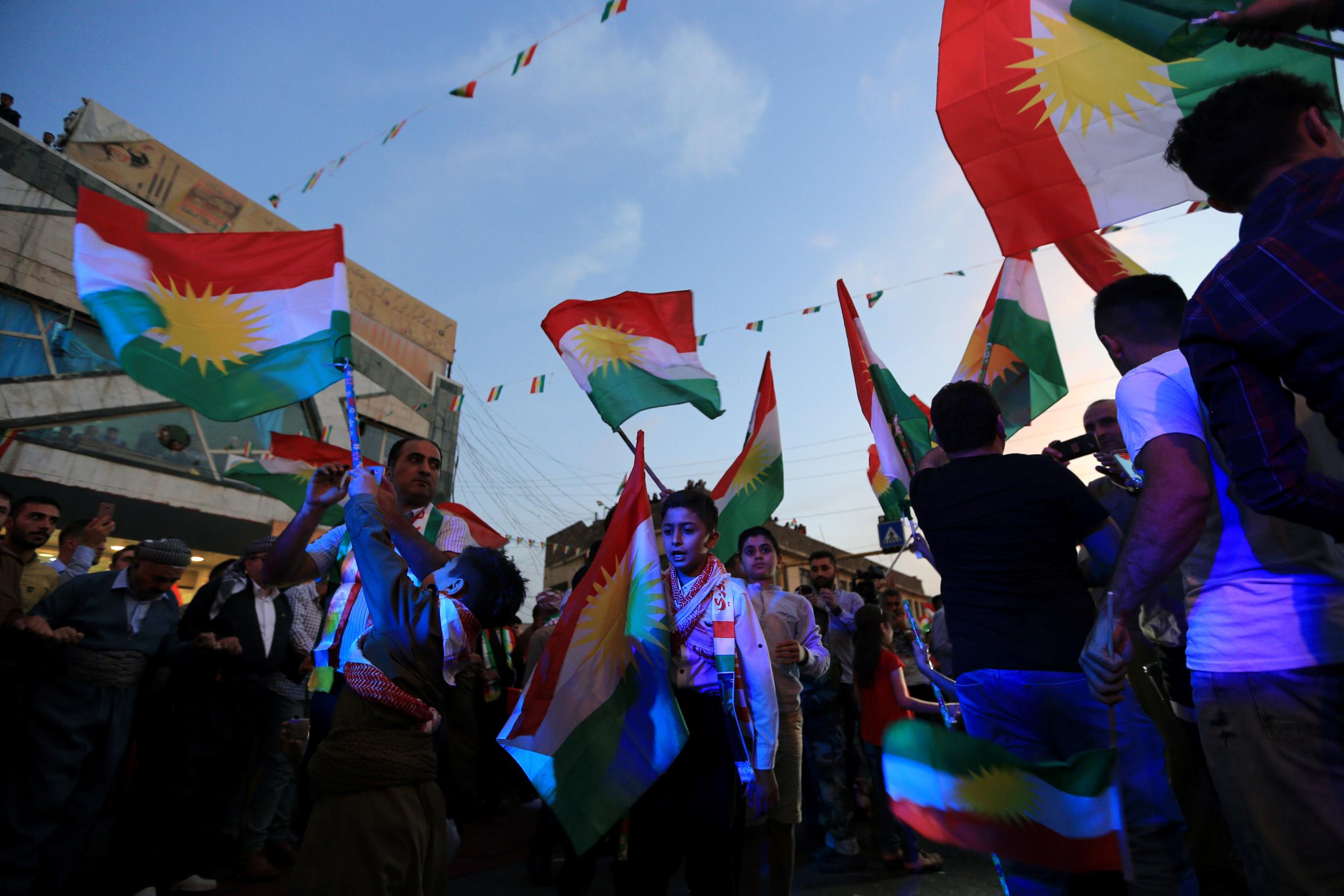Kurdistan referendum: Iraq demands Kurdish authorities 'cancel' outcome of independence vote in northern region
Kurdish independence is bitterly opposed on economic and security grounds by Baghdad as well as the governments of neighbouring Turkey and Iran

Your support helps us to tell the story
From reproductive rights to climate change to Big Tech, The Independent is on the ground when the story is developing. Whether it's investigating the financials of Elon Musk's pro-Trump PAC or producing our latest documentary, 'The A Word', which shines a light on the American women fighting for reproductive rights, we know how important it is to parse out the facts from the messaging.
At such a critical moment in US history, we need reporters on the ground. Your donation allows us to keep sending journalists to speak to both sides of the story.
The Independent is trusted by Americans across the entire political spectrum. And unlike many other quality news outlets, we choose not to lock Americans out of our reporting and analysis with paywalls. We believe quality journalism should be available to everyone, paid for by those who can afford it.
Your support makes all the difference.Iraq's Prime Minister Haider al-Abadi has demanded that the Kurdish authorities in the north of the country "cancel" the outcome of this week's independence referendum.
In a speech to parliament on Wednesday, Mr Abadi reiterated his order that the Kurdistan Regional Government (KRG) must give up control of its international airports by Friday, or face a ban on international flights into the Kurdish region. Kurdish forces must also withdraw from disputed areas currently under KRG control such as Kirkuk, he added.
Northern Iraq's 8.4 million strong population voted overwhelmingly in favour of independence in Monday's referendum, which was non-binding and not recognised by Baghdad's central government. It is believed to have returned a 90 per cent 'yes' result on a turnout of approximately 72 per cent.
"We won't have a dialogue about the referendum outcome," Mr Abadi told assembled politicians. "If [the KRG] want to start talks, they must cancel the referendum and its outcome."
The Kurdish people – who number roughly 30 million across several countries – were left stateless when the Ottoman Empire collapsed a century ago.
While the vote was been met with enthusiasm by the Kurdish diaspora all over the world, Baghdad and Iraq's Arab population have expressed their concerns that areas voting in the referendum include Kirkuk, an ethnically mixed and oil-rich province.
Ths US also repeatedly attempted to persuade the KRG to delay the referendum, fearing further friction between Irbil and Baghdad could derail the fight against Isis and Iraq's fragile peace.
The Iraqi Civil Aviation Authority sent a notice on Wednesday to foreign airlines telling them international flights to Erbil and Sulaimaniya in the Kurdish region would be suspended on Friday at 1500 GMT.
KRG Transport Minister Mowlud Murad rejected Baghdad's instructions, telling a media conference that the airports must remain open to maintain the Kurdish economy and to facilitate the offensives on Isis' last remaining strongholds in the country.
The move comes after neighbouring Turkey and Iran closed their airspace as voting took place on Monday.
Ankara and Tehran are worried that the creation of an independent Kurdistan could fuel the desire for Kurdish independence within their own countries.
Turkish President Recep Tayyip Erdogan sent troops and tanks to the border with the KRG earlier this week, where they were joined for joint exercises with Iraqi troops.
The Turkish leader has accused KRG President Masoud Barzani of "treachery" in going ahead with the independence referendum, warning on Tuesday that Iraq's Kurds would starve if Turkey decided to close its long border with northern Iraq.
Further economic and military action were both options on the table for Ankara, he added, if Turkey's security was threatened by the outcome of the independence referendum.
Join our commenting forum
Join thought-provoking conversations, follow other Independent readers and see their replies
Comments